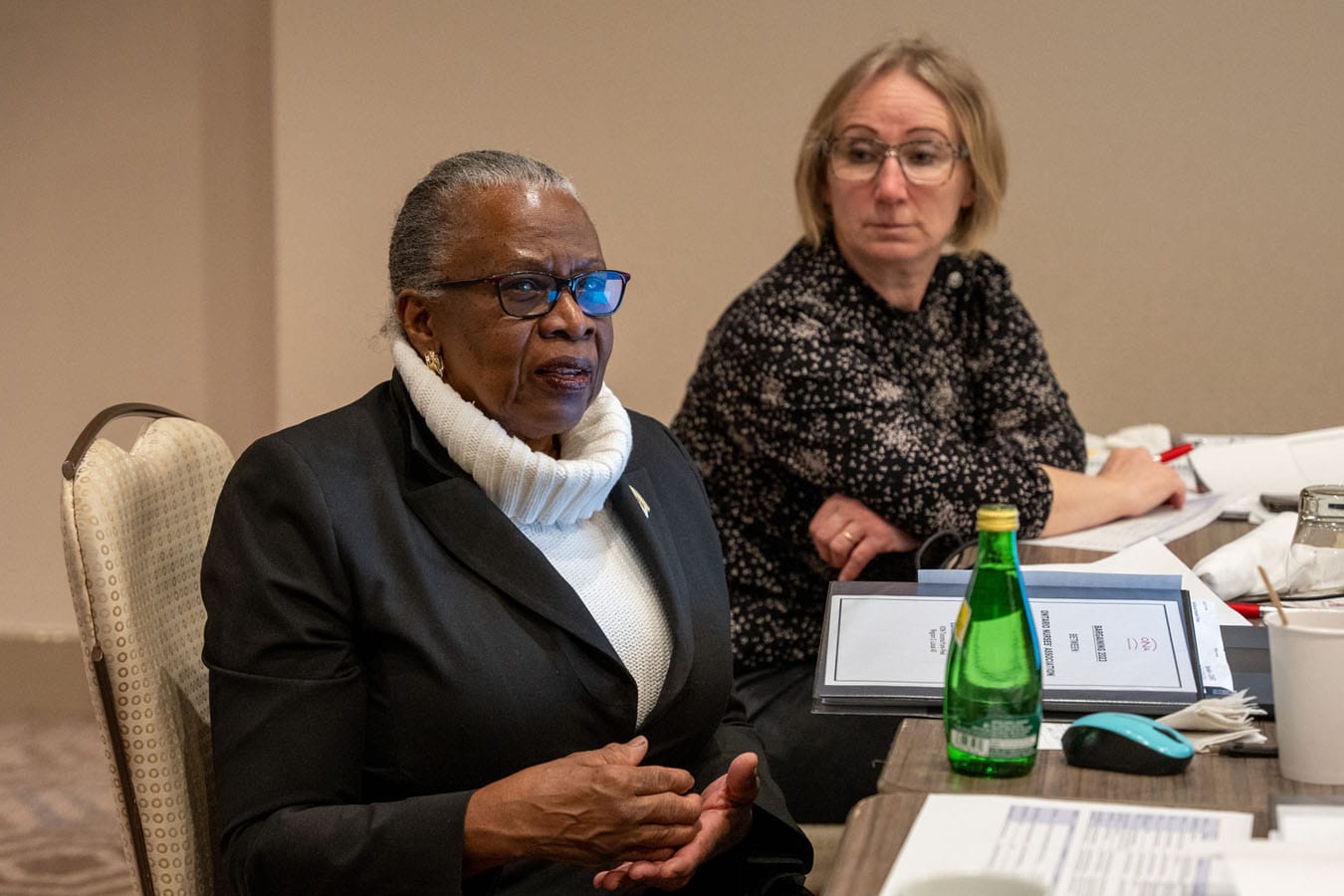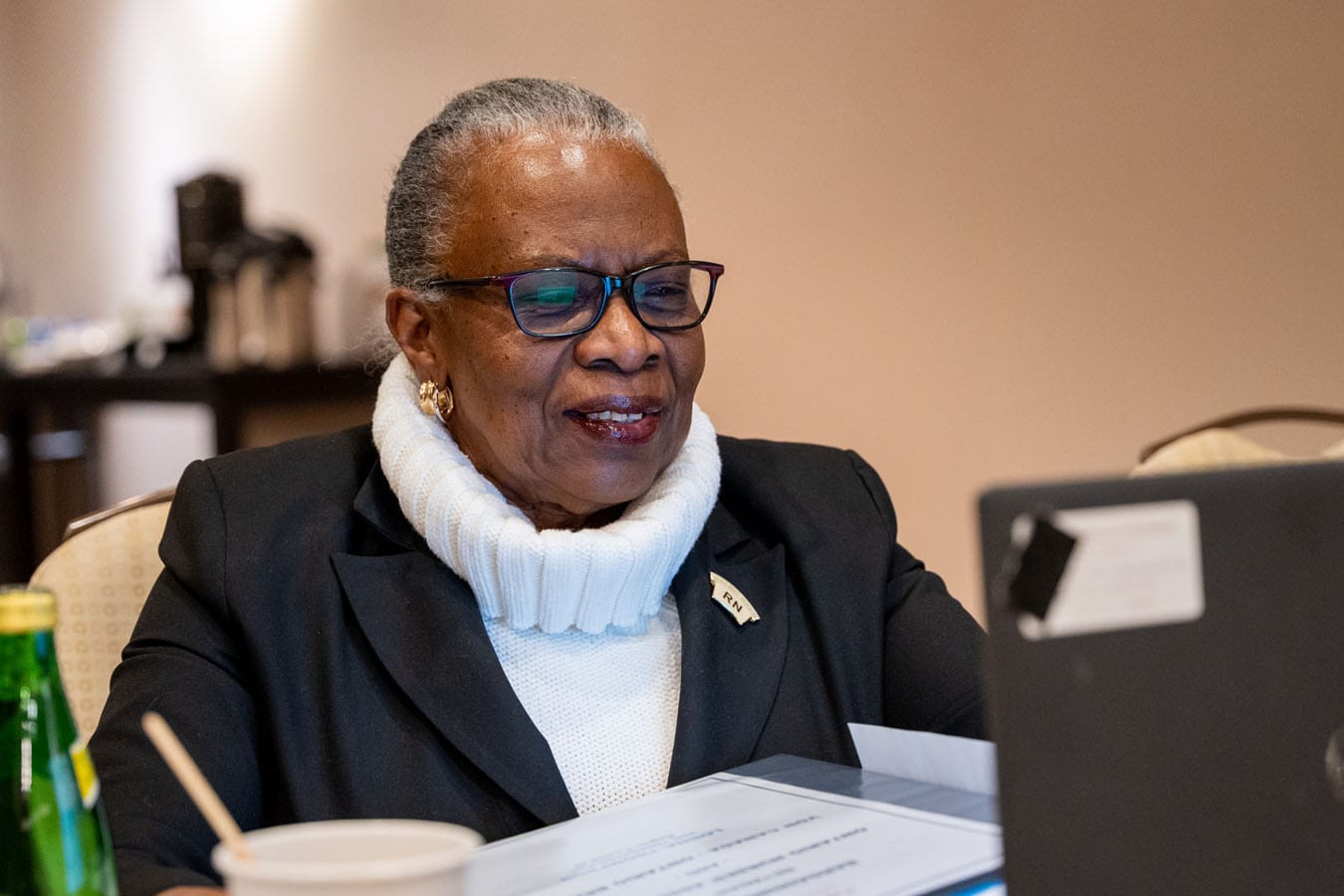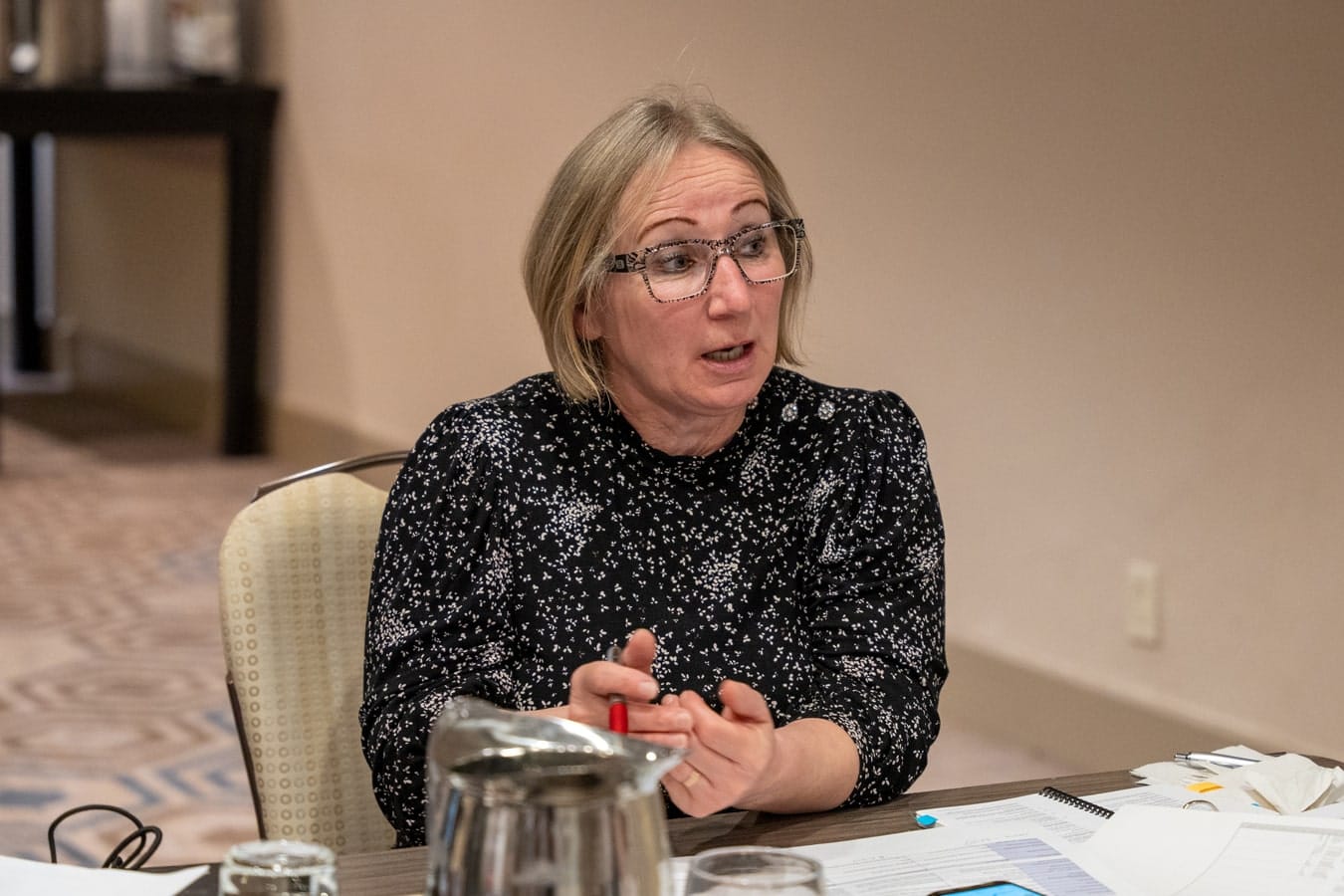Time to pay fair for home care

Lorna Thompson (left) from ONA43 and Lucja Masoom from ONA14 are long-serving members on our Victorian Order of Nurses Provincial Negotiating Team.

Lorna Thompson (left) from ONA43 and Lucja Masoom from ONA14 are long-serving members on our Victorian Order of Nurses Provincial Negotiating Team.
Home-care workers can seem invisible to the rest of the health-care sector. They might not come to mind when we think of nurses, like those in hospitals or medical offices or public health buildings. Instead, they make assessments, coordinate clients’ care needs and go from home to home, visiting people exactly where they are, where they need help. Their work is primarily done behind closed doors.
The home-care nurses and health-care professionals working at the Victorian Order of Nurses (VON) provide specialized care, often keeping people out of overflowing hospitals and long-term care facilities. They’re an essential part of our health-care system, and they should be treated as such by their employer.
Except they aren’t.
VON home-care RNs, for example, are the lowest paid in the province.
VON members’ real wages declined 8 per cent over the pandemic, 14 per cent over the past decade and 16 per cent since they peaked in 2009. At a time when we’re all feeling the pinch and struggling to keep financially afloat, this decline in real wages is even more keenly felt.
Lucja Masoom, a member of ONA’s VON Provincial Negotiating Team (VONPNT), which will begin bargaining with the employer in the weeks to come, has seen it happen first-hand.
“Over the years, the home-care sector has been neglected, fragmented and privatized more and more. This time around, at stake are not only wages, but also our jobs. There is lower funding for the home-care sector. We see that in low wages for RNs and other health-care professionals in many services being cut, in backed-up hospitals, and in home-care companies unable to accept new referrals due to staff shortages. Staff shortages are caused by poor recruitment and retention, which in turn are caused by low wages and increased safety risks in communities.”
As Masoom alluded to, it’s not just wages that make working at VON a challenge. These members face violence on the job, work in remote areas, and do many home visits alone. They are often scheduled and expected to see clients back-to-back, even though their clients may live hours apart. They pay out-of-pocket for gas and don’t get added pay for working weekends, late nights or holidays.

Lorna Thompson, who sits on our Victorian Order of Nurses Provincial Negotiating Team, says that home care has become “a scary place in which to work…and it’s going to take all hands-on deck to turn this around.”
Lorna Thompson, Bargaining Unit President for VON Toronto-York (Peel site), agrees.
“When I joined home care some decades ago, it was an honour to be part of VON. Home care has become a scary place in which to work. It’s going to take all hands-on deck to turn this around.”
After years of wage cuts and soaring inflation, dangerous conditions and unreasonable expectations, these circumstances have become untenable. Many home-care nurses and health-care professionals are leaving their jobs. But without them, there is no home care, and we need it now more than ever.
Ontario’s aging population is expected to grow by more than 650,000 over the next six years, but the number of nursing and personal care hours has stayed the same since 2019. As Ontarians get older, there will be a huge increase in the already-strong demand for home-care services, but there is no plan to provide extra staff to cover it. Unless the VON Board of Directors negotiates fair wages and improved benefits, there won’t be enough staff to provide the home-care services we need.
Money is always around when CEOs need raises.
As union activists, we know the fight doesn’t just take place at the bargaining table. We should all join ONA members at VON in their campaign so that everyone knows how VON treats its staff. Masoom is sounding the alarm:
“During COVID, when most primary care clinics closed their doors to the public, and emergency departments were strongly discouraging people from accessing them, home-care nurses worked double time. We received referrals from family practitioners to do assessments, wound care, and various treatments for patients because they were not being seen by their MDs. When we were finally given PPE, there were many times we had to put it on outside of patients’ homes in -20 C or -25 C weather because many patients lived in poor conditions with no room to change inside of their homes.”
We know that while the VON CEO and Board of Directors say they can’t pay their staff the same as hospital nurses or hire into the sector, it’s just not true. Money is always around when CEOs need raises. The VON CEO and Board simply refuse to fairly compensate their staff or commit to improving retention and recruitment.
Regardless of VON’s actions, Thompson remains steadfast.
“This is a critical time not just for the home care sector, but for the viability of many VON branches. This employer has demonstrated more of their inability to support fair wages and reasonable work environments, taking so much from the workers and giving back so little.”
Management at VON wants our members there to think they have no impact on bargaining, but we know that’s not the case. We’ve seen time and again how pressure from workers and those who support them, such as other ONA members and their communities, can have a huge impact.
“We are compassionate, highly skilled nurses. We encounter many unique challenges, including safety risks, and we must not be treated like second-class nurses.”

Wages, violence on the job, work in remote areas, and many solo home visits can make home care challenging, notes Victorian Order of Nurses Provincial Negotiating Team member Lucja Masoom.
It isn’t just VON management that created this problem. Premier Ford and his government have also had a significant hand by starving the public health-care system for years.
Let’s review the facts.
Ontario’s health-care funding is the lowest in Canada, routinely 10 per cent below the national average. Despite receiving new funding during and since the pandemic, the Ford government has a record of spending billions less on health care than what was allocated.
Ford received one-time health-care top-ups in 2019, 2020 and 2021, but instead of earmarking these funds to fix our public health-care system, he used them to pave a path for balanced budgets (which never happened), increase contingency funds and to open the door further to privatization.
We know the effect these actions have. Leaving health funding on the table and directing one-time top-ups elsewhere starves our public health-care system, leading to service cuts, privatization and the kinds of recruitment and retention issues that ONA members working at VON are currently fighting against.
“The government does not consider home-care nursing an essential service,” notes Masoom. “We are compassionate, highly skilled nurses. We encounter many unique challenges, including safety risks, and we must not be treated like second-class nurses.”
We all know the Ford government needs to do the right thing and fix our public health-care system. But we also know they can’t be trusted to do it without public pressure. With no end in sight to the injuries Ford and his government are inflicting on our health-care system, it’s up to us to fight like hell to make it right.
VON members are fighting back. They’re determined to win wage parity and improved benefits. They’re fighting so Ontarians can access high-quality and timely care at home when they need it. And they won’t be silenced until their demands are met.
When one of us wins, we all win. Gains achieved in one collective agreement spread to more and more until they become commonplace. Our VON members are in the fight of their lives, and they need our help – if not for them, then for all of us.
“I see this round of negotiations as an opportunity for us to collectively stand up and demand the respect that we have already earned and the benefits we so deserve,” concludes Thompson. “We have processes that will assist us in getting the tasks done and securing our goals, but it will require all our participation as a group.”
Visit ona.org/VON to find out how you can support our VON members and tell VON management to pay fair for home care.
This is a standard popup that can be repurposed for general site-wide messages.
We use cookies to improve your experience on our website. To learn more, read our privacy policy.